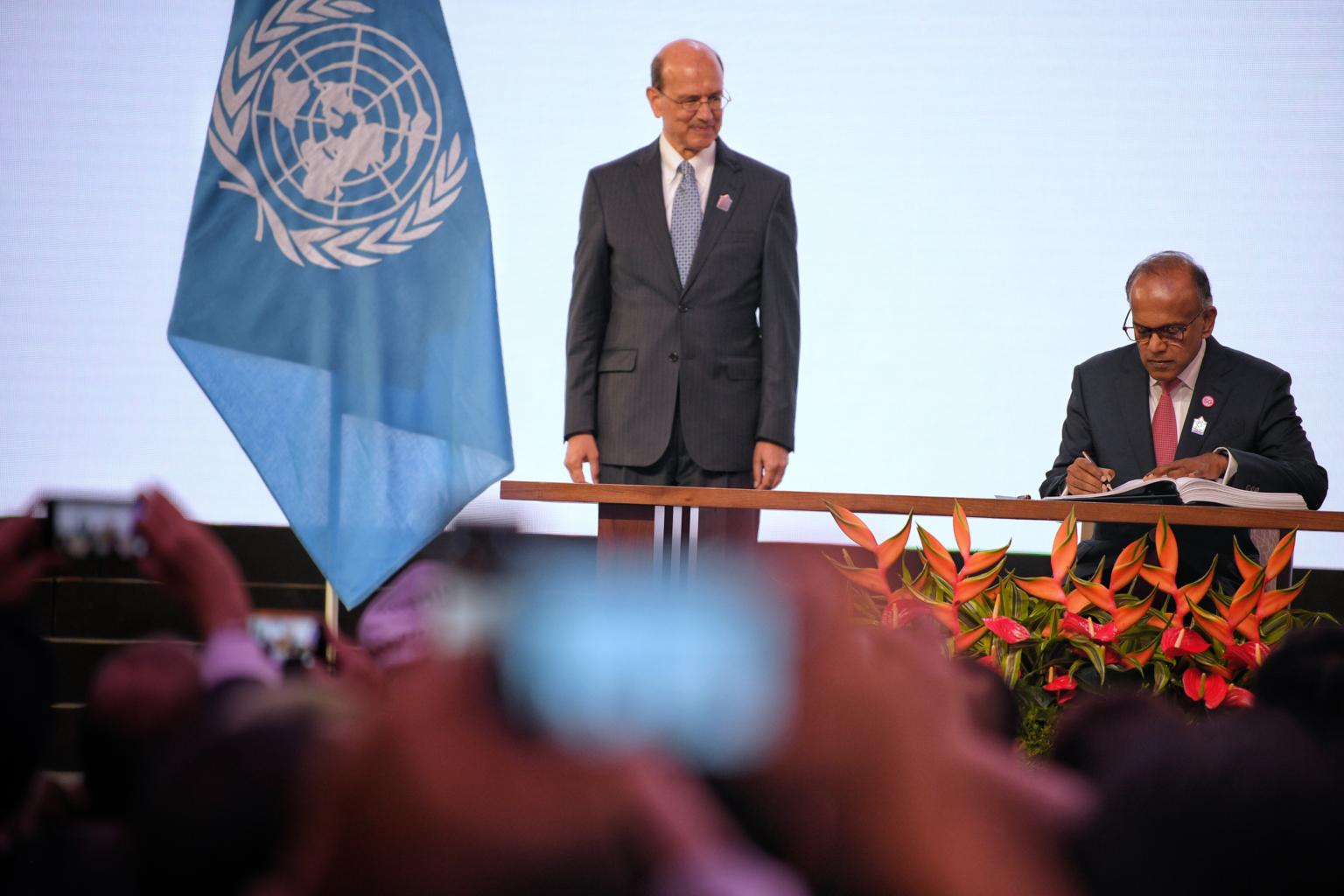Singapore Convention on Mediation comes into force
Sign up now: Get ST's newsletters delivered to your inbox

A photo from Aug 7, 2019, shows Law Minister K. Shanmugam (right) with UN Assistant Secretary-General for Legal Affairs Stephen Mathias during the Singapore Convention on Mediation signing ceremony.
PHOTO: ST FILE
SINGAPORE - An international convention that aims to help businesses resolve cross-border disputes and further facilitate international trade took effect on Saturday (Sept 12).
Called the Singapore Convention on Mediation, the United Nations treaty is the first to be named after the country, said the Ministry of Law in a statement.
The convention seeks to provide businesses around the world with more certainty in resolving cross-border disputes through mediation by making it possible for them to apply directly to the courts of countries that have ratified the treaty.
Minister for Home Affairs and Law K. Shanmugam, who represented Singapore as the first country to sign the treaty, said: "The convention's entry into force is a significant milestone, as it further strengthens the international dispute resolution enforcement framework.
"This benefits businesses by providing greater certainty in resolving cross-border commercial disputes, ultimately facilitating international trade and commerce."
As of Sept 1, 53 countries have signed the convention, also known as the UN Convention on International Settlement Agreements Resulting from Mediation, including the United States, China and India. The list also includes Afghanistan and the island nation Palau.
Ecuador, Fiji, Singapore, Qatar, Saudi Arabia and Belarus have ratified the convention.
Through mediation, parties in a cross-border dispute can attempt to negotiate a new deal, facilitated by a neutral third-party mediator, to salvage a commercial relationship which would otherwise disintegrate if the litigation or arbitration routes were taken.
Presently, a settlement agreement made in one country has no legal force in another. A party seeking to enforce a mediated settlement agreement in another country or multiple countries will have to commence legal proceedings in each country.
This can be costly and time-consuming, especially for international settlement agreements.
The treaty also strengthens Singapore's position as an international dispute resolution centre and better serves the needs of international businesses that use Singapore as a base for international commercial transactions, said the ministry.
Secretary of the UN Commission on International Trade Law Anna Joubin-Bret said: "We look forward to (the convention) bringing certainty and stability to the international framework on mediation, and contributing to the sustainable development goals, including the goal of promoting peaceful and inclusive societies for sustainable development."


